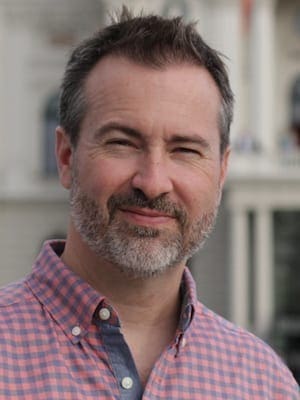Editor’s note: The documentary “Ready to Forgive: An African Story of Grace” will air on ABC-TV stations between Oct. 18 and Dec. 13. Click here for local listings or here to order it on DVD.
It’s difficult to comprehend a message of genuine forgiveness after beatings, abductions, killings and a total disruption of peace.
But just such a message lies at the core of the hour-long documentary “Ready to Forgive: An African Story of Grace,” produced by the Evangelical Lutheran Church in America and hosted by Imaculée Ilibigaza, a Rwandan genocide survivor and the author of “Left to Tell.”
“Ready to Forgive” is laced with on-location photography and plentiful interviews – not only with survivors of attacks, but also members of the Lutheran World Federation and others in Uganda who have worked to restore peace to Northern Uganda after more than 20 years of conflict.
The documentary focuses on the ability of the Acholi people of Northern Uganda to forgive their own: members of their own villages who were, in many cases, forced to join a rebel group called the Lord’s Resistance Army (LRA), led by Joseph Kony, which committed atrocities against the Acholi people.
The clash between the LRA and the Ugandan government – the Uganda People’s Defense Force (UPDF) – scarred the country. It displaced 2 million people and created a land full of IDPs or “internally displaced persons.” Villages crumbled and farms evaporated, meaning sustenance agriculture became impossible.
IDPs lived in camps where they fought starvation, disease, continued attempts at forced service into the LRA and more.
Running through this trail of misery, however, is a hopeful and, frankly, mind-boggling emphasis on forgiveness among the Acholi people. Despite abuse, mutilation and death, the Acholi people tout forgiveness. They want their “sons and brothers” to return home from the LRA and for peace to ensue.
Complicating matters, however, is the International Criminal Court, which some Ugandans fear will stall a peace process between the Ugandan government and rebel commanders.
Filmmakers are on hand as LRA leaders, counselors and mediators come together with Acholi communities to seek a solution and an end to violence. The apparently peaceful proceedings – especially given what has happened – are almost shocking. Order rules and cool heads reign in the dusty, shaded courtyard where involved parties gather.
At the core of all this is the Acholi concept of mato oput: a forgiveness process that involves six principles: truth, mercy, justice, peace, restoration and transformation. The Acholi want to forgive, but discovering truth must come first, and truthfulness requires taking responsibility for one’s actions and owning wrongdoing. The process unfolds from there and, significantly, involves mercy on the part of the offended party.
“Ready to Forgive” devotes its last act to some positive traction resulting from at least some movement in a peaceful direction. The IDP camps have dwindled as people have returned home. That transition, however, requires rebuilding an infrastructure and a renewed relationship not only with people, but with the life-giving land for farming.
The strength of “Ready to Forgive” certainly lies in the cumulative message from the Acholi people themselves that forgiveness is not only possible, but preferable – even demanded – as the only viable way forward for peace. Retribution and revenge are not priorities; they are not seen as avenues toward hopeful futures for the Acholi children.
This way of thinking – this strategy – seems obvious, and painfully so because it is forgotten or rejected or at least not practiced by most people.
The truth Jesus preached 2,000 years ago is still the truth, and it’s being lived in Northern Uganda. Watch the documentary and glimpse peacemaking in action.
Cliff Vaughn is managing editor and media producer for EthicsDaily.com.
The documentary’s Web site is here.

